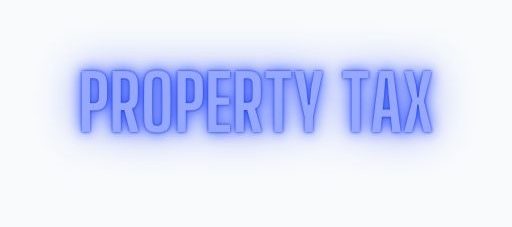Should you bundle auto and home insurance?
December 27, 2024

- Roadzen partners with Cimarron Underwriters to expand insurance offerings nationwide
- Auto insurance denials highest in California, Texas and Florida
- California wildfires: State will soon require insurers to increase home coverage in wildfire-prone areas; here’s what to know
- Insurance stocks sell off sharply as potential losses tied to LA wildfires increase
- LA fires could hit European insurance firms with billion euros in loss
Bạn đang xem: Should you bundle auto and home insurance?
Boerth Aadne Saetrenes/Getty Images
Auto and homeowners insurance rates have surged this year. For motor vehicle insurance alone, we’ve seen an average premium increase of 12.7% from 2023 to 2024, according to the November Consumer Price Index released by the U.S. Bureau of Labor Statistics. Many companies suggest bundling — which means you’re purchasing your home and auto policies in a bundle from one provider — to save money.
While the promise of discounts through bundling sounds appealing, this route isn’t always worth it. We talked to insurance professionals to help you determine when it would make sense to bundle. They shared insights about discounts, coverage options and what to consider before bundling your policies.
Find out how affordable the right insurance policy could be here.
Should you bundle auto and home insurance?
Experts agree that bundling home and auto insurance can offer valuable benefits.
“Discounts vary between companies, but you could easily see 10% or more in savings on each policy,” says Mike Barrett, co-principal of Barrett Insurance Agency. Beyond monetary savings, bundling simplifies your insurance management with one point of contact for all your needs.
Rajni Kapur, CEO of All Solutions Insurance, points out that insurance carriers often view bundled customers as lower-risk. This could lead to attractive rates and terms. However, Michael Orefice, SVP of operations at SmartFinancial, reminds us that “in some instances, you may save more by going with different insurers.”
Xem thêm : Michael Moore Defends ‘Boiling’ Anger For Health Insurance Industry
Below, we’ll explore what bundling means and whether it’s the smart choice for your situation.
Learn more about the best coverage options available to you.
What insurance bundling really means
Insurance bundling means combining multiple policies — typically home and auto insurance — with the same provider. Most insurance companies offer discounts ranging from 10% to 25% when you bundle, depending on your state and the coverage types you choose. While base premiums for home and auto have gone up, Kapur notes bundling discounts have remained stable.
When you bundle, you’ll have one bill to track and one insurer handling your coverage needs.
“Having a devoted agent means you’re not calling a 1-800 number hoping for good service,” says Orefice. Your agent becomes an ally who conducts annual reviews and ensures you have solid coverage.
But remember, bundling also means both policies are tied to one company. If you’re unhappy with the service or find better rates elsewhere, you’ll need to switch both policies to make a change.
When it makes sense to bundle auto and home insurance
Bundling insurance makes the most sense when you want simple, comprehensive coverage. If a storm damages your home and car, you’ll only need to work with one agent and file one claim. This streamlined process saves you time and stress during an already difficult situation.
Many insurance companies treat bundled customers as preferred clients.
“[You may] enjoy loyalty benefits, such as reduced costs and [enhanced coverage options],” Kapur says.
Xem thêm : Liberty Mutual leaving California’s rental insurance market
Finally, having all your policies with one provider means building a long-term partnership with an agent who understands your unique needs. If they spot gaps in your coverage, they’ll suggest additional protection, such as umbrella policies. This personalized attention helps ensure you have the right coverage at the best possible rates.
When it may not make sense to bundle auto and home insurance
At times, keeping your policies separate makes more financial sense.
“If you [have] dings or a DUI on your driving record, you may save money buying car insurance from a specialty provider [offering] reasonable rates for high-risk drivers,” says Orefice.
Also, certain homes and vehicles need specialized coverage that bundled policies can’t provide.
“If [you] own a high-value home or one located in a high-risk area (e.g., flood or wildfire zones), [you may need] specialized [homeowners] insurance [not available at] a carrier with competitive auto rates,” says Kapur. This applies to luxury cars, antiques and collector vehicles too.
Even with a clean driving record and standard coverage needs, Kapur emphasizes that separate policies could offer greater value. For example, she recently helped a family in a wildfire-prone area find more affordable coverage by splitting their policies. They got specialized home insurance for their location while securing a separate auto policy that gave better rates and accident forgiveness for their teen driver.
The bottom line
Deciding whether to bundle your insurance policies requires careful research. Barrett advises casting a wide net. Start by comparing auto quotes from several providers, and ask each about their bundling discounts. Then do the same with home insurance companies. While this process takes time, it could save you hundreds of dollars yearly.
After getting insurance, don’t set and forget it. Orefice suggests reviewing your coverage at least once a year. “If you’re seeing increases in your insurance rates, it’s time to look around [and] see what others will offer,” he stresses.
Nguồn: https://propertytax.pics
Danh mục: News

